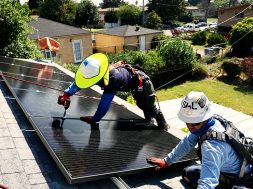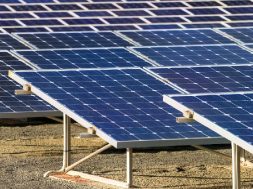
International Off-Grid Renewable Energy Conference Highlights Changing Energy Access Narrative
Nearly 600 off-grid renewable energy practitioners and leaders from the public and private sector are gathering in Nairobi, Kenya this weekend for the third International Off-Grid Renewable Energy Conference (IOREC). Organized by the International Renewable Energy Agency (IRENA) in partnership with the Kenya Ministry of Energy and Petroleum and the Alliance for Rural Electrification, the objective of IOREC is to boost electricity access through the development of off-grid renewables.
Speaking at the opening session, IRENA Director-General Adnan Z. Amin stressed the important role for off-grid renewables as a critical tool for empowering development. “Access to electricity is a central building block for socio-economic development. It empowers communities to increase income and productivity, gain access to healthcare and education, enhance water and food security, and improve general well-being,” said Mr. Amin.
“Thankfully, a confluence of factors including cost declines and technology innovations, are making it more possible than ever to achieve universal electricity access through off-grid renewables,” Mr. Amin added.
Highlighting new developments in off-grid renewables emerging throughout the world, Mr. Amin suggested these examples “not only demonstrate how the penetration of off-grid renewable energy solutions is expanding energy access around the world, they suggest that the traditional access story we are familiar with might need to be revisited.”
Some of those numbers include:
- Across East Africa, more than 350,000 households are powering homes and devices with solar panels and using mobile money to pay for it.
- In Bangladesh, over 4 million solar home systems have now been deployed reaching over 18 million people or 11% of the total population.
- In 2015, USD 276 million was invested in the off-grid solar sector alone across the world, a 15-fold increase over 2012.
- About 60 million people may be using off-grid renewable electricity of some kind in Africa. That is about 10% of those living off-grid.
- Technological innovations and new business models will reduce the costs of producing electricity from renewable mini-grids by more than 60% in the next two decades.
- In Africa, small solar PV systems for single households can now provide basic electricity services for as little as USD 56 per year.
“The story of energy access that we would like to highlight today – one of incredible promise and opportunity, and one that is happening all over the world – is perhaps best exemplified by these powerful numbers,” said Mr. Amin.















